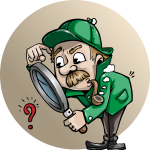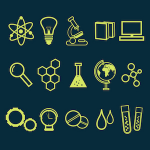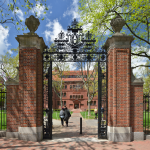The editor-in-chief of a preeminent scientific journal should know what a "scientist" is -- and isn't. Holden Thorp, the editor of the journal Science, does not.
scientific method
Today, there is simply too much known in far too many diverse fields for any person to hold it all in their brain. This means that, no matter how smart one might be, there are times when we have to push the “I believe” button and simply accept the statements of others. The problem is that these others are too often wrong, the topic is too often very important, and the statements made are too wildly disparate. We feel we must choose, yet we don’t know how.
The Lancet reports that a clinical study of different doses of glucocorticoids for managing COVID pneumonia was stopped because treatment led to more deaths. There is power in saying, “We were wrong.”
There’s an increasing concern among scholars that, in many areas of science, famous published results tend to be impossible to reproduce.
As the saying goes, "There are three kinds of lies: lies, damned lies, and statistics." We know that's true because statisticians themselves just said so. A jaw-dropping study reveals that nearly 1 in 4 of them report being asked to remove or alter data to better support a hypothesis. That is called scientific fraud.
According to pharmacologist Ray Dingledine, good science is hard to do because of (1) "our drive to create a coherent narrative from new data, regardless of its quality or relevance"; (2) "our inclination to seek patterns in data whether they exist or not"; and (3) our negligence to "always consider how likely a result is regardless of its P-value." The good news is that this can be fixed.
Dr. Ioannidis is not just a bull in a china shop; he's a bazooka in a china shop. And now the bazooka is aimed at shoddy nutrition research, which he suggests is in need of "radical reform."
It's quite easily right at the top of the list. In fact, the scientific method is designed precisely to answer it. Rigorously following a procedure involving observation, hypothesis and tightly-controlled experimentation is what separates science from all other disciplines. OK, you ask, so what's the question? Just click here to find out.
Corporations aren’t all evil, and universities are not all saints. Most products are coming from industry work. Meanwhile, plenty of junk science comes from universities – and sometimes even from Boston's most prestigious academic institution.
Statistics is difficult, and choosing the proper tools becomes more challenging as experiments become more complex. That's why it's not uncommon for large genetics or epidemiological studies to have a biostatistician as a co-author. Perhaps more biomedical studies should follow suit.
Claims that the “the science isn’t settled” with regard to climate change are symptomatic of a large body of ignorance about how science works. So what is the scientific method, and why do so many people, sometimes including those trained in science, get it so wrong?
The first thing to understand is that there is no one method in science, no one way of doing things. This is intimately connected with how we reason in general.
Science and reasoning
An analysis of 70 papers shows that most scientific research does not advance by "falsification," as philosopher Karl Popper made famous. Ironically, falsification has itself been falsified.










